Overview:
Nettle tea is an herbal infusion made from the leaves of the stinging nettle plant (*Urtica dioica*). Although nettles are notorious for their painful sting, once processed (dried or boiled), the leaves lose their sting and can be consumed safely. Nettle tea has been used for centuries in traditional medicine due to its rich nutritional profile and numerous health benefits, particularly for reducing inflammation, supporting kidney health, and boosting immunity.
Nutritional Composition:
Nettle tea is packed with vitamins, minerals, and antioxidants, making it a nutrient-dense beverage. Some key components include:
– Vitamins: Vitamin A, Vitamin C, Vitamin K, B-Vitamins (B1, B2, B5)
– Minerals: Iron, Calcium, Magnesium, Potassium, Phosphorus, Zinc
– Antioxidants: Flavonoids, carotenoids, and polyphenols
– Other Compounds: Chlorophyll, essential amino acids, and silica
Health Benefits of Nettle Tea:
1. Reduces Inflammation:
– Nettle tea is rich in anti-inflammatory compounds, making it effective in treating conditions like arthritis, joint pain, and other inflammatory diseases.
– The plant contains polyphenols and flavonoids that help reduce the production of inflammatory cytokines, alleviating pain and swelling in the body.
2. Supports Kidney and Urinary Health:
– Nettle tea has mild diuretic properties, which promote healthy kidney function by increasing urine output and flushing toxins from the urinary tract.
– It is often used as a natural remedy for preventing and treating urinary tract infections (UTIs) and kidney stones, helping to cleanse the kidneys and reduce the risk of infections.
3. Promotes Healthy Skin:
– Nettle tea’s high antioxidant content helps fight free radical damage, reducing oxidative stress on the skin. This can slow down the aging process and improve skin health.
– It is also used as a remedy for skin conditions such as eczema, acne, and psoriasis due to its anti-inflammatory and antimicrobial properties.
4. Boosts Immunity:
– Nettle tea is rich in Vitamin C, which plays a key role in strengthening the immune system. The tea also contains flavonoids and antioxidants that help protect the body from infections and diseases by enhancing immune function.
– Regular consumption of nettle tea can help reduce the severity of cold and flu symptoms, speeding up recovery.
5. Supports Respiratory Health:
– Nettle tea is known for its ability to alleviate symptoms of seasonal allergies, such as hay fever, by reducing histamine levels in the body.
– It can also soothe respiratory conditions like asthma, bronchitis, and chest congestion, making it easier to breathe and reducing irritation in the airways.
6. Improves Joint and Bone Health:
– Nettle tea is rich in minerals like calcium, magnesium, and silica, all of which are essential for maintaining strong bones and preventing bone-related disorders such as osteoporosis.
– It also contains boron, which plays a role in bone metabolism and joint health, making nettle tea beneficial for individuals with arthritis or other joint-related issues.
7. Regulates Blood Sugar Levels:
– Nettle tea has been shown to help regulate blood sugar levels, making it a potential natural remedy for managing diabetes.
– Compounds in the tea may help improve insulin sensitivity and reduce blood sugar spikes after meals, aiding in the prevention of type 2 diabetes.
8. Supports Cardiovascular Health:
– The antioxidants in nettle tea help reduce oxidative stress in the cardiovascular system, protecting against conditions such as hypertension, high cholesterol, and atherosclerosis.
– Nettle tea may help reduce blood pressure by promoting the production of nitric oxide, a compound that helps relax blood vessels and improve blood flow.
9. Enhances Digestive Health:
– Nettle tea can help improve digestion by stimulating the production of digestive enzymes, reducing bloating, and easing symptoms of indigestion.
– Its anti-inflammatory and antimicrobial properties also make it useful for soothing the digestive tract and preventing gastrointestinal infections.
10. Improves Hair Health:
– Nettle tea is often used as a natural remedy for promoting hair growth and reducing hair loss. The silica and sulfur content help strengthen hair strands, reduce dandruff, and improve scalp health.
– Drinking nettle tea or applying it topically (as a rinse) may help improve hair texture and promote shinier, healthier hair.
How to Make Nettle Tea:
Nettle tea is easy to prepare and can be made using fresh or dried nettle leaves. It’s important to use gloves when handling fresh nettle leaves to avoid getting stung.
Ingredients:
– 1 tablespoon dried nettle leaves (or 1 teaspoon fresh nettle leaves, chopped)
– 1 cup boiling water
– Honey or lemon (optional, for added flavor)
Instructions:
1. Boil 1 cup of water.
2. Place the dried nettle leaves in a tea infuser or directly in your cup.
3. Pour the boiling water over the nettle leaves.
4. Cover and let steep for 5-10 minutes, depending on your desired strength.
5. Strain the leaves and add honey or lemon if desired.
6. Enjoy your soothing cup of nettle tea!
Potential Side Effects and Precautions:
While nettle tea is generally safe for most people, there are some precautions and potential side effects to consider:
1. Allergic Reactions:
– Some individuals may be allergic to nettles. If you experience symptoms like skin rashes, itching, or difficulty breathing after consuming nettle tea, discontinue use and consult a healthcare provider.
2. Pregnancy and Breastfeeding:
– Pregnant women should consult with a healthcare provider before consuming nettle tea, as it may stimulate uterine contractions and increase the risk of miscarriage.
– Breastfeeding women should also consult with a healthcare provider to ensure that nettle tea is safe to consume during lactation.
3. Diuretic Effect:
– Nettle tea has a mild diuretic effect, which may lead to increased urination. If you are taking diuretics or medications for kidney or bladder conditions, consult a healthcare provider before adding nettle tea to your routine.
4. Medication Interactions:
– Nettle tea may interact with certain medications, including blood thinners, blood pressure medications, and diabetes medications. Always consult your doctor if you are on medication and plan to consume nettle tea regularly.
5. Overconsumption:
– While nettle tea is beneficial, it should be consumed in moderation. Drinking large amounts of nettle tea may lead to side effects such as digestive discomfort, dehydration, or an imbalance of certain nutrients in the body.
Conclusion:
Nettle tea is a powerful herbal infusion packed with vitamins, minerals, and antioxidants. Its impressive range of health benefits, including reducing inflammation, boosting the immune system, and supporting skin, hair, and bone health, makes it a valuable addition to any wellness routine. Whether you’re looking to improve digestion, manage allergies, or promote overall vitality, nettle tea can be a natural remedy to support your health. Enjoy it as part of a balanced diet, and consult a healthcare provider if you have any concerns about its use.

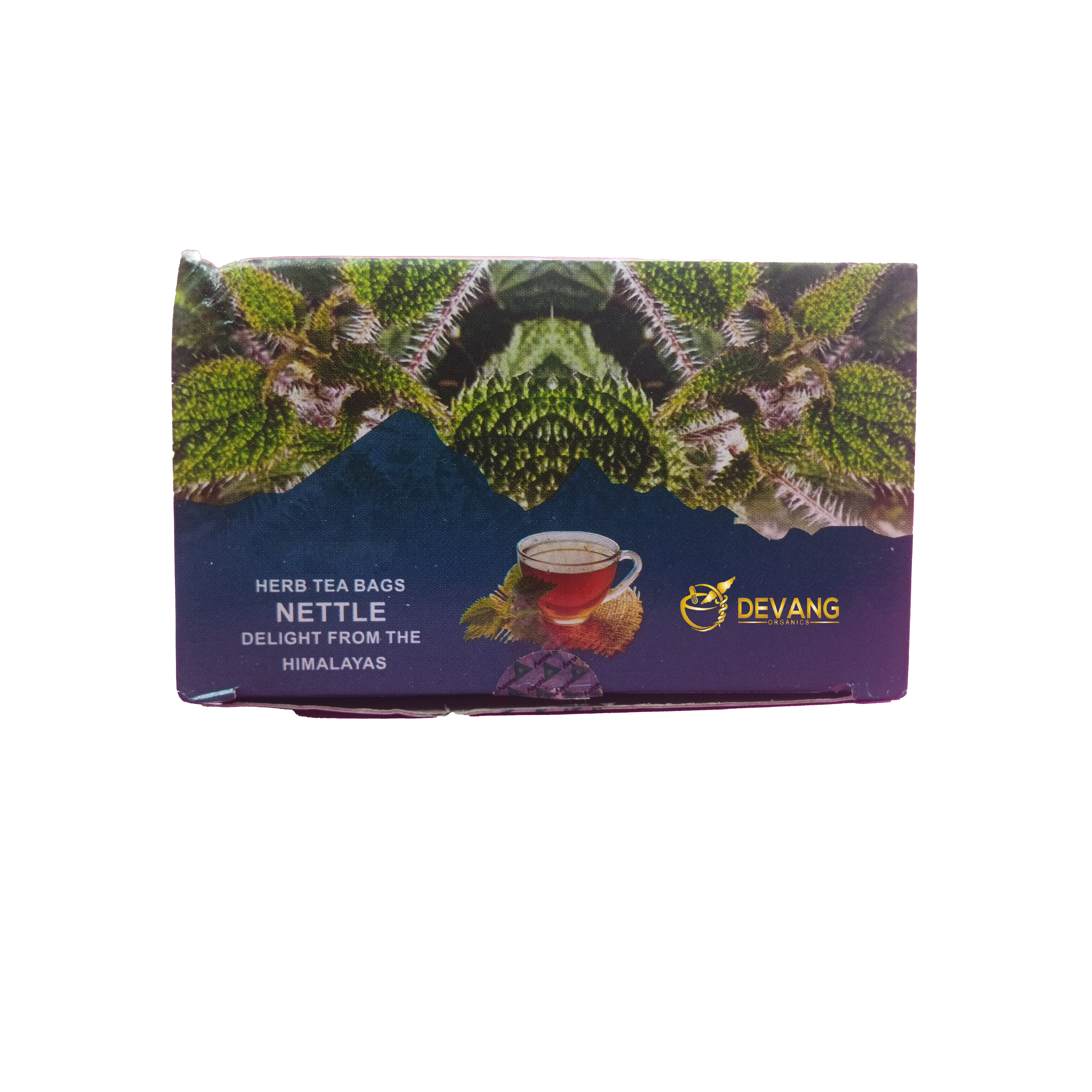
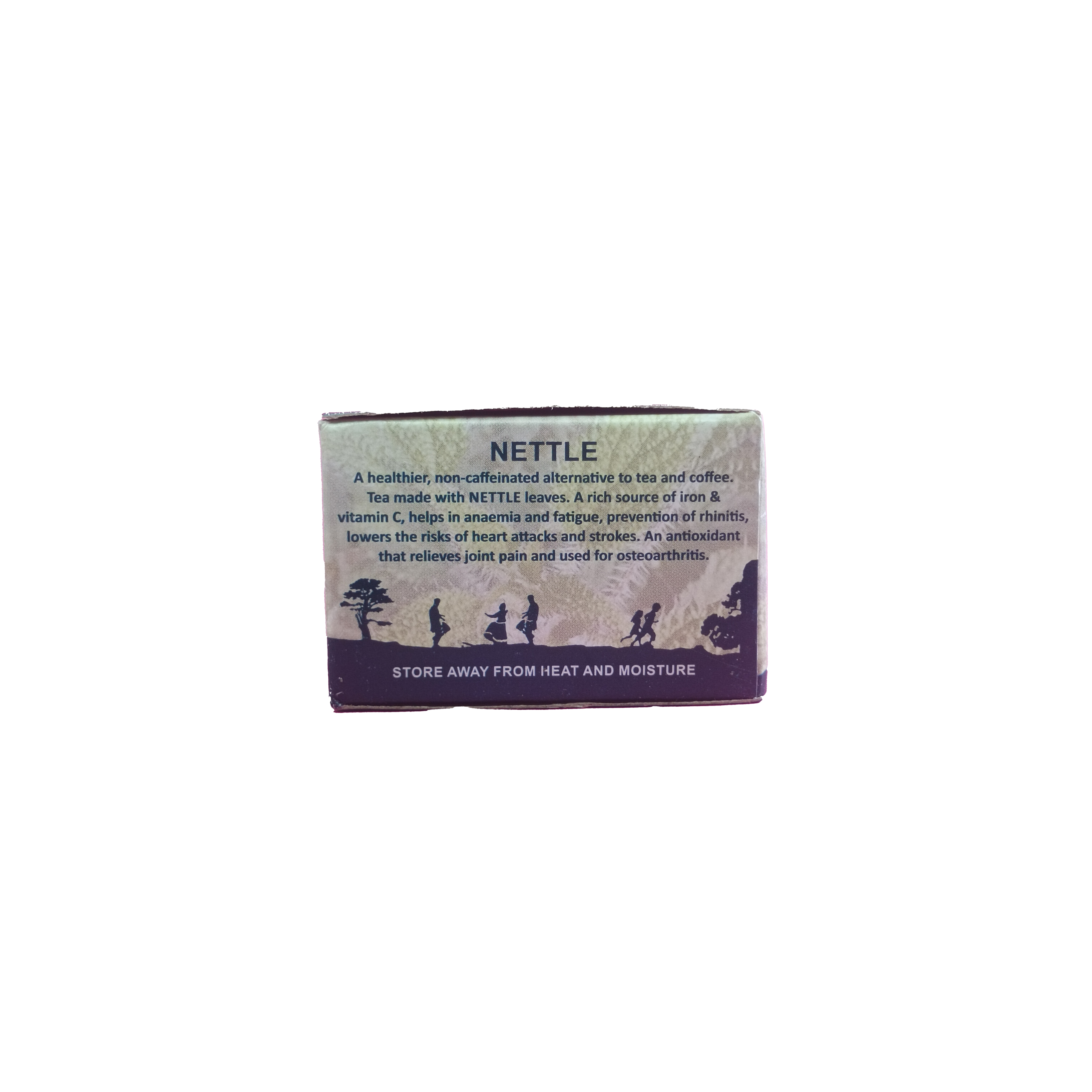
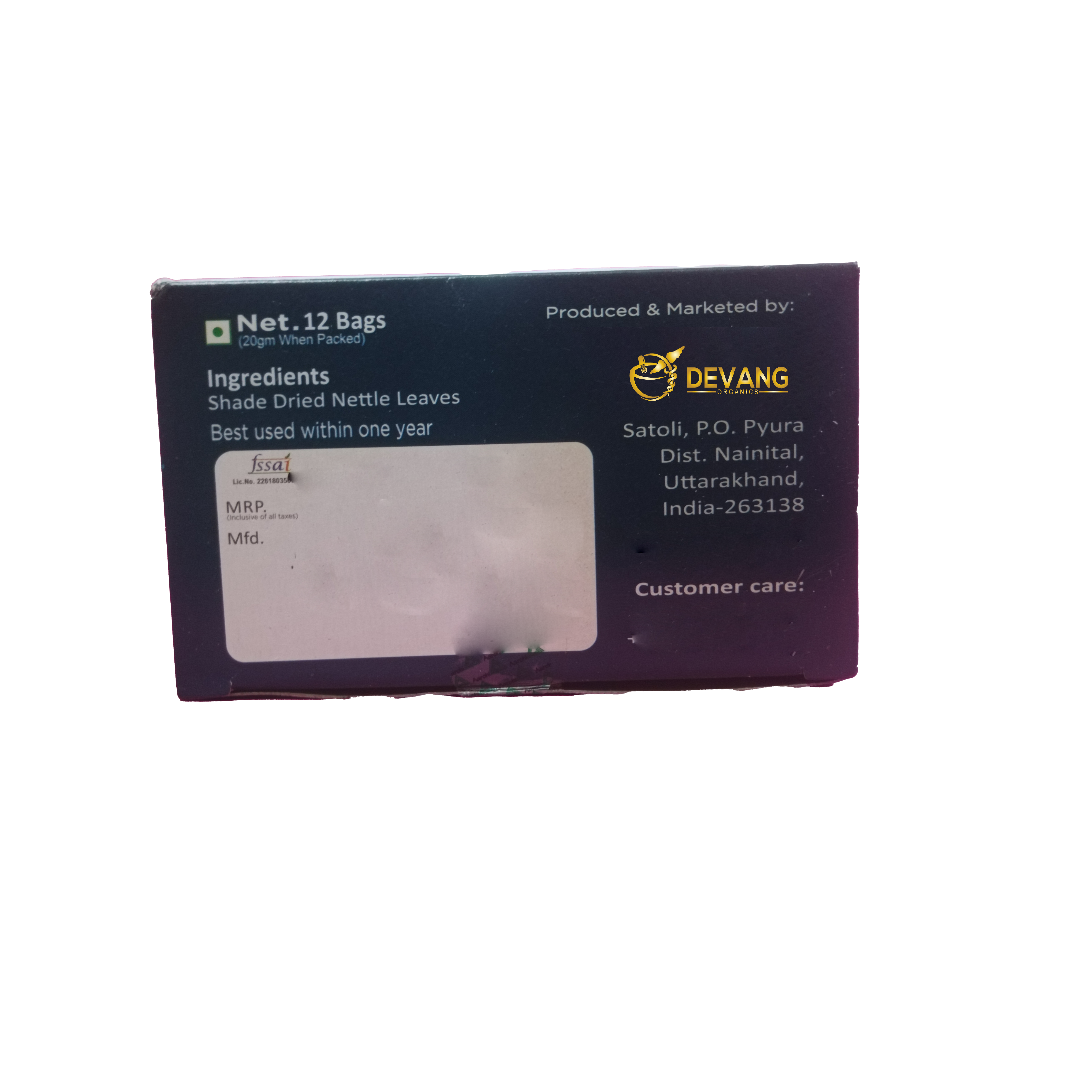
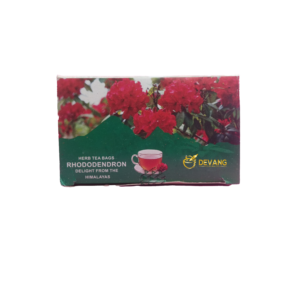
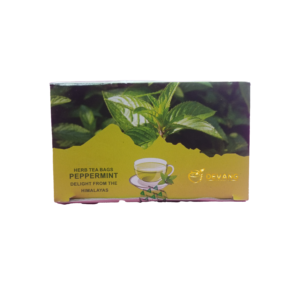
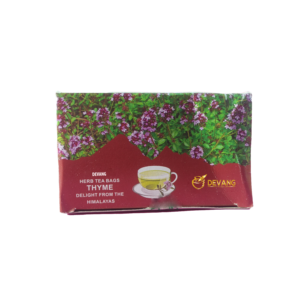
Reviews
There are no reviews yet.